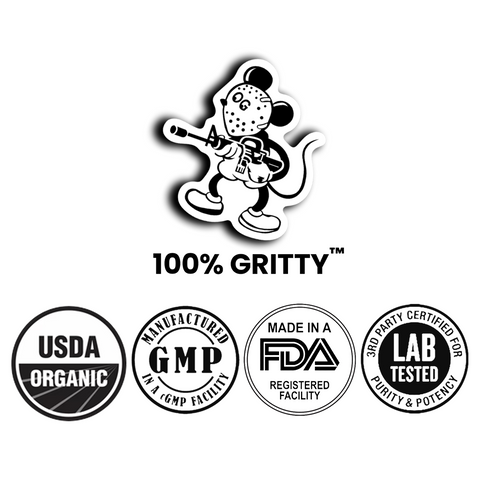When is the Best Time to Take CBD?
Cannabidiol (CBD) is a non-psychoactive compound found in the hemp plant, and it's becoming increasingly popular for its therapeutic properties. Many people take CBD to help manage various health conditions, including anxiety, pain, and inflammation. However, one question that often arises is, "When is the best time to take CBD?" In this post, we'll explore this topic in depth, examining the different factors that can affect the timing of CBD consumption.
Understanding CBD and Its Effects
Before we delve into the best time to take CBD, it's essential to understand how this compound works in the body. CBD interacts with the endocannabinoid system (ECS), which plays a crucial role in regulating various physiological processes, such as mood, appetite, sleep, and pain sensation. The ECS consists of three components: endocannabinoids (cannabinoids produced by the body), receptors (found throughout the body), and enzymes (that break down endocannabinoids).
CBD works by binding to receptors in the ECS, particularly the CB1 and CB2 receptors. Unlike tetrahydrocannabinol (THC), the primary psychoactive compound in cannabis, CBD doesn't directly activate these receptors. Instead, it modulates their activity, which can have a wide range of effects on the body.

The timing of CBD consumption can affect its effects, and there are several factors to consider when determining the best time to take CBD.
Factors to Consider When Deciding the Best Time to Take CBD
Reason for Taking CBD
The first factor to consider when deciding the best time to take CBD is the reason for taking it. Different health conditions require different dosages and timing. For instance, if you're taking CBD for sleep, you may want to take it an hour before bedtime to give it time to take effect. On the other hand, if you're using CBD for pain relief, you may want to take it as needed throughout the day.
Type of CBD Product
The type of CBD product you're using can also affect the timing of consumption. For instance, if you're using CBD oil, you'll need to hold it under your tongue for a minute or so before swallowing it. This method allows for faster absorption through the sublingual glands. In contrast, edibles take longer to take effect since they need to pass through the digestive system first.
Bioavailability
Bioavailability refers to the amount of CBD that reaches your bloodstream and produces its effects. The bioavailability of CBD can vary depending on the delivery method. For instance, sublingual administration has the one the highest bioavailability. In contrast, oral consumption has the lowest bioavailability since the CBD needs to pass through the digestive system and liver first.
Individual Factors
The best time to take CBD can also depend on individual factors, such as age, weight, metabolism, and genetics. For instance, older adults may need a higher dosage of CBD to experience the same effects as younger adults. Additionally, people with slower metabolism may need to take CBD earlier in the day to avoid feeling drowsy.
When is the Best Time to Take CBD?
The best time to take CBD depends on your individual needs and reasons for taking it. Here are some general guidelines to consider:
For Pain Relief: If you're taking CBD for pain relief, it's best to take it before the pain becomes severe. This allows the CBD to build up in your system and potentially reduce inflammation and pain.
For Sleep: If you're taking CBD to help with sleep, it's best to take it 30 minutes to an hour before bedtime. This allows the CBD to work its way through your system and potentially promote relaxation.
For Anxiety: If you're taking CBD to help with anxiety, it's best to take it in the morning or early afternoon. This allows the CBD to help balance out any anxious feelings throughout the day.
For Exercise Recovery: If you're taking CBD to aid in exercise recovery, it's best to take it immediately after your workout. This allows the CBD to potentially reduce inflammation and promote muscle recovery.
Incorporating Organic Grit CBD Products
Organic Grit offers a variety of CBD products that can be easily incorporated into your daily routine. Here are some examples:
CBD Oil Tinctures: Organic Grit CBD oil tinctures can be taken sublingually or added to food or drinks for easy consumption.
CBD Topicals: Organic Grit CBD topicals can be applied directly to the skin for localized relief.
CBD Gummies: Organic Grit CBD gummies are an easy and convenient way to incorporate CBD into your daily routine.
The Bottom Line
When it comes to the best time to take CBD, it ultimately depends on your individual needs and reasons for taking it. Whether you're looking for pain relief, better sleep, anxiety relief, or exercise recovery, there is a time and a CBD product that may work best for you. With Organic Grit's high-quality CBD products, it's easy to incorporate CBD into your daily routine and potentially experience its many benefits.





Comments (0)
There are no comments for this article. Be the first one to leave a message!